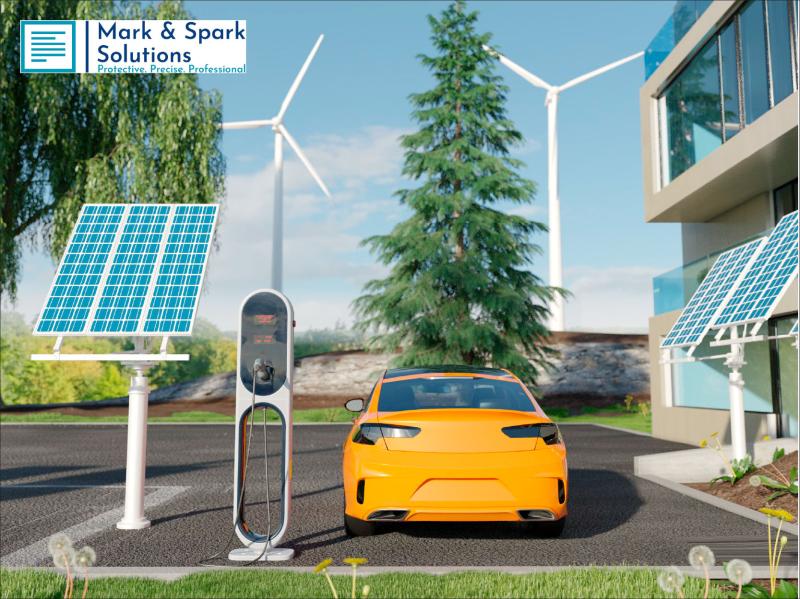 The Germany E-Fuel Market is poised for remarkable expansion, projected to increase sales volume from 281 million liters in 2027 to an impressive 804 million liters by 2034. This trajectory reflects a robust compound annual growth rate (CAGR) of 30.5% during the forecast period, signaling a transformative shift toward sustainable synthetic fuels in the nation’s transport, aviation, and industrial sectors.
The Germany E-Fuel Market is poised for remarkable expansion, projected to increase sales volume from 281 million liters in 2027 to an impressive 804 million liters by 2034. This trajectory reflects a robust compound annual growth rate (CAGR) of 30.5% during the forecast period, signaling a transformative shift toward sustainable synthetic fuels in the nation’s transport, aviation, and industrial sectors.
To study the complete report at: https://marksparksolutions.com/reports/germany-e-fuel-market
This comprehensive growth is driven by Germany’s strategic commitment to decarbonization, leveraging cutting-edge technologies and supportive government policies. E-fuels, produced using renewable electricity and captured carbon dioxide, are rapidly gaining traction as vital alternatives to conventional fossil fuels, especially in sectors where direct electrification remains challenging.
❖ Market Dynamics & Drivers
Germany’s aggressive climate goals underpin the surge in e-fuel adoption. The country aims to reduce greenhouse gas emissions by 65% by 2030 compared to 1990 levels, with the transport sector contributing around 20 to 25% of national emissions. E-fuels, including synthetic diesel, gasoline, and aviation fuel, are integral to meeting these targets by offering carbon-neutral solutions compatible with existing infrastructure.
❖ Key drivers include:
▸ Government backing through the National Hydrogen Strategy and EU funding, allocating over €9 billion to hydrogen and Power-to-Liquid (PtL) initiatives.
▸ Increasing availability of renewable energy, with over 45% of electricity generated from wind and solar in 2023, fueling large-scale hydrogen production via electrolysis.
▸ Public-private partnerships accelerating commercial-scale plants, such as INERATEC GmbH’s ERA ONE facility in Frankfurt, producing up to 2,500 tons of e-fuel annually.
Despite these advantages, the market faces challenges related to high energy demand for production, requiring approximately 50-55 kWh of renewable electricity per liter of e-diesel. Industry efforts focus on situating production facilities close to renewable energy sources to optimize efficiency and mitigate grid strain.
Download a free sample report here: https://marksparksolutions.com/sample-reports?217&Download_Free_Sample
❖ Market Segmentation & Regional Insights
The Germany e-fuel market encompasses a diverse fuel portfolio strategically tailored to various end-use applications:
▸ E-Kerosene (Aviation Fuel): Holds roughly 30.2% market share, essential for sustainable aviation fuel (SAF) to reduce emissions in long-haul flights.
▸ E-Diesel: Constitutes about 27.78%, primarily serving heavy-duty transport and maritime sectors.
▸ E-Gasoline: Accounts for 18.67%, favored in the automotive sector for compatibility and reduced lifecycle emissions.
▸ E-Methane and E-Methanol: Combined share over 22%, leveraging existing natural gas infrastructure and gaining ground in industrial and maritime uses.
▸ E-Ammonia and Hydrogen-Derived E-Fuels: Emerging with niche roles in carbon-free combustion and energy-dense applications for shipping and industrial processes.
Regionally, production is concentrated in states like Bavaria, North Rhine-Westphalia, Lower Saxony, and Baden-Württemberg, benefiting from localized renewable power generation and industrial ecosystems supporting e-fuel technology development.
❖ Industry Leaders & Innovations
Prominent players shaping the Germany e-fuel landscape include:
▸ INERATEC GmbH: Operating Europe’s largest commercial-scale e-fuel plant with plans to expand capacity to 3,500 tons annually by 2030.
▸ Sunfire SE: Targeting a 500 MW electrolyser capacity to underpin extensive green hydrogen production, with ambitious projects set to produce 25 million liters annually by 2026.
▸ German eFuel One GmbH and HCS Group GmbH are advancing large-scale synthetic fuel plants aligned with national sustainability goals.
Technological advancements emphasize modular Power-to-Liquid plants, electrolysis improvements, and AI-driven process optimizations to enhance yield and cost efficiency, paving the way for scalable, economically viable e-fuel production.
Ask for a discount here: https://marksparksolutions.com/sample-reports?33&Ask_for_Discount
❖ Outlook
The Germany E-Fuel Market is positioned as a cornerstone in the country’s energy transition, offering a feasible pathway to decarbonize sectors where alternatives are limited. With sustained investments, evolving policy frameworks, and renewable energy integration, experts anticipate the market will not only meet domestic climate objectives but also position Germany as a global leader in synthetic fuels innovation.
This dynamic market outlook underscores the critical balance between ambitious environmental targets and technological advancements, revealing significant opportunities for stakeholders across the value chain to contribute to a low-carbon future.
For further customizations write your queries at: sales@marksparksolutions.com
Mark & Spark Solutions
3rd Floor, Panchsheel Park, Aundh,
Pune – 411067, India.
sales@marksparksolutions.com
+1-585-374-1088, +91-9158340999
Mark & Spark Solutions (Wholly Owned by ITvia Data Solutions) is a leading market research consulting firm dedicated to empowering businesses with insightful strategies and solutions for success. Rooted in a commitment to excellence and fueled by innovation, we have become a trusted partner for companies across diverse industries. Our expertise in market dynamics, consumer behavior, and industry trends enables us to provide actionable intelligence that drives growth, refines strategies, and enhances brand performance.
Our team of seasoned researchers, analysts, and consultants collaborates closely with clients to deliver tailored solutions that meet their unique needs. Through our syndicated market research reports, custom market analysis, and strategic consulting services, we provide the insights and expertise that help businesses thrive in competitive markets.
This release was published on openPR.